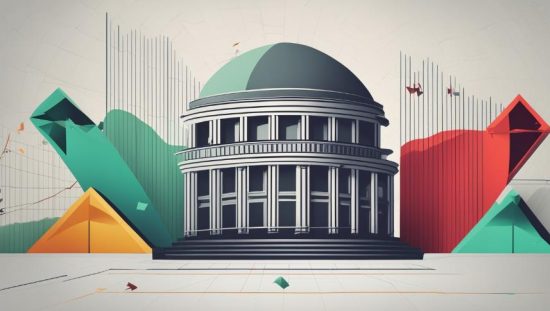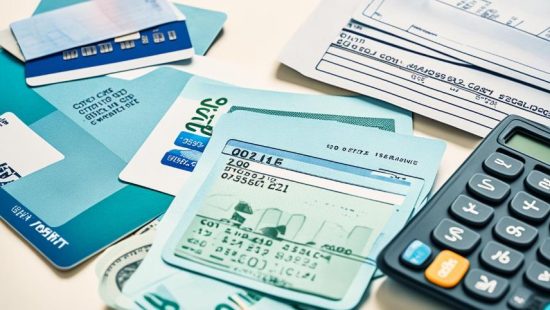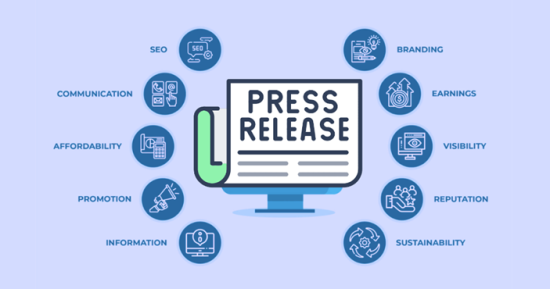
Whether you’re heading off to college or already enrolled in a higher education program, student loans are likely a part of your financial journey. But have you ever wondered what exactly student loans can be used for? Are there limitations on how you can spend the funds? In this comprehensive guide, we will explore the allowable expenses that can be covered by student loans and shed light on important limitations you need to keep in mind.
Student loans can be a significant financial tool to help you achieve your educational goals, but understanding how to use them wisely is crucial for your long-term financial well-being. So, let’s dive in and uncover what you can do with your student loan funds.
When it comes to student loans, there are specific uses that are considered allowable expenses. These expenses generally revolve around covering the costs directly related to your education. However, it is essential to be aware of the limitations to ensure you maximize the benefits without any unexpected surprises down the line.
Are you ready to discover what can student loans be used for? Let’s get started!
Understanding the Basics of Student Loans
In this section, we will provide an overview of the basics of student loans. Understanding the fundamentals of student loans is crucial when navigating the financial aspect of higher education.
The Difference Between Federal and Private Student Loans
When it comes to financing your education, there are two main types of student loans: federal loans and private loans.
Federal loans are funded by the government and offer a range of benefits, including fixed interest rates, flexible repayment options, and loan forgiveness programs. These loans are typically more favorable for borrowers, especially those with limited credit history or financial need.
Private loans, on the other hand, are offered by private lenders such as banks, credit unions, and online lenders. These loans have variable interest rates, and eligibility, terms, and conditions are determined by the lender. Private loans are often used to fill the gap between the cost of education and other financial aid sources.
It’s important to carefully consider the differences between federal and private loans before making a decision, as each option has its own advantages and disadvantages.
General Eligibility Criteria for Student Loans
Eligibility for student loans is determined by various factors, including your enrollment status, demonstrated financial need, and credit history.
For federal loans, most students are eligible as long as they meet the following criteria:
- Be a U.S. citizen or eligible noncitizen
- Have a valid Social Security number
- Be enrolled or accepted in an eligible degree or certificate program
- Maintain satisfactory academic progress
- Complete the Free Application for Federal Student Aid (FAFSA)
Private loan eligibility criteria may vary depending on the lender, but generally, they consider factors such as credit score, income, and employment history.
Understanding the basics of student loans, including the difference between federal and private loans, as well as the general eligibility criteria, is essential for making informed decisions about financing your education. Next, we will delve deeper into the differences between federal and private student loans, including interest rates, borrowing caps, repayment plans, and loan forgiveness options.
Federal vs. Private Student Loans: How Do They Differ?
When it comes to financing your education, there are two main types of student loans to consider: federal loans and private loans. Understanding the differences between these two options is crucial in making informed decisions about your financial future.
Interest Rates and Borrowing Caps
One significant difference between federal and private student loans is the interest rates. Federal loans typically offer fixed rates that are determined by the government, ensuring stability and predictability over the life of the loan. On the other hand, private loans often have variable interest rates that can fluctuate over time, potentially leading to higher repayment amounts in the long run.
Another key factor to consider is the borrowing cap associated with each type of loan. Federal loans have borrowing limits that depend on factors such as your year in school and dependency status. In contrast, private loans may allow you to borrow larger amounts based on your creditworthiness and the lender’s policies.
Repayment Plans and Loan Forgiveness

Repayment plans play a crucial role in managing student loan debt. Federal loans offer various repayment options, including income-driven plans that can help borrowers with limited income make affordable monthly payments. Additionally, federal loans may offer loan forgiveness programs for eligible borrowers who meet specific criteria, such as working in public service or teaching in low-income areas.
Private loans, on the other hand, may have fewer options when it comes to repayment plans. Each lender sets its own terms and conditions, so it’s essential to carefully review the options available before committing to a private loan. Loan forgiveness programs are also typically not available for private loans, making it important to consider the long-term implications of your borrowing decisions.
Overall, understanding the differences between federal and private student loans is crucial in making informed financial decisions for your education. It’s essential to carefully consider interest rates, borrowing caps, repayment plans, and loan forgiveness options to select the best loan option that aligns with your financial goals and circumstances.
What Can Student Loans Be Used For?

When it comes to student loans, understanding what expenses they can cover is crucial. Student loans can be used to fund a variety of educational expenses, allowing you to pursue your academic goals without financial stress.
One of the primary uses of student loans is to cover tuition and fees. Whether you’re attending a community college or a prestigious university, student loans can help pay for your educational expenses. This includes tuition costs for your courses, as well as any mandatory fees associated with your program.
Room and board is another expense that student loans can help you with. If you’re living on campus or in off-campus housing, student loans can assist in covering your rent, utilities, and other housing-related costs. This provides you with a place to focus on your studies without worrying about financial strain.
Textbooks and other educational materials are also considered allowable expenses that can be covered by student loans. The cost of textbooks can add up quickly, but with the help of student loans, you can ensure you have all the necessary resources for your classes.
Additionally, student loans can be used to cover other educational expenses such as lab fees, technology needs, and transportation costs. These expenses are essential for your academic journey and are eligible to be paid for using student loan funds.
However, it’s important to note that student loans are intended for educational purposes only. While they can help alleviate the financial burden of pursuing higher education, they should not be used for personal expenses or non-academic indulgences.
By understanding what student loans can and cannot be used for, you can make informed decisions about your finances and ensure that your loan funds are used responsibly.
The Application Process for Student Loans
When it comes to applying for student loans, the process can sometimes seem overwhelming. However, with the right information and guidance, you can navigate through it successfully. In this section, we will walk you through the application process for student loans, ensuring that you have a clear understanding of the steps involved.
One of the first steps in the application process is completing the FAFSA (Free Application for Federal Student Aid) for federal loans. The FAFSA is a crucial form that determines your eligibility for various types of financial aid, including student loans. It collects information about your income, assets, and other factors that may affect your financial need.
Once you have completed the FAFSA, you will need to gather the necessary documentation to support your loan application. This may include documents such as tax returns, W-2 forms, bank statements, and proof of enrollment in a qualifying educational program. Having these documents ready will streamline the application process and ensure that you meet all requirements.
After gathering the necessary documentation, you can begin the process of submitting your loan application. For federal loans, you will do this through the Department of Education’s online portal. Many private lenders also provide online application platforms for their student loan products.
During the application process, it is important to read and understand all terms and conditions associated with the loan. This includes details such as interest rates, repayment plans, and any applicable fees. Taking the time to review these details will help you make informed decisions and choose the loan that best suits your needs.
Remember, the application process may differ depending on whether you are applying for federal or private student loans. It is important to research and understand the specific requirements and deadlines for each type of loan.
Overall, the application process for student loans involves completing the necessary forms, gathering the required documentation, and submitting your application. By following these steps and staying organized throughout the process, you can increase your chances of securing the funding you need to pursue your educational goals.
Authorized Educational Expenses Covered by Student Loans
In order to help you make the most of your student loans, it is important to understand the authorized educational expenses that can be covered by these funds. By utilizing student loans for these purposes, you can ensure that you are using your loan funds in a way that aligns with your academic needs and financial goals.
Tuition and Fees
Tuition and fees are typically the most significant expenses faced by college students. Fortunately, student loans can be used to cover these costs, allowing you to pursue your education without worrying about the financial burden. It is important to note that tuition and fees can vary between schools, so it is essential to carefully consider these costs when budgeting for your education.
Room and Board Considerations
Another important expense to consider when planning your college education is room and board. Whether you choose to live on-campus or off-campus, student loans can be used to cover the cost of housing and meals. It is crucial to assess your living arrangements and estimate the associated costs to ensure that you budget accordingly.
Textbooks and Class Materials
Textbooks and class materials can quickly add up and become a significant expense for students. Fortunately, student loans can be used to purchase the necessary textbooks, online resources, and other materials required for your classes. By utilizing your loan funds for these educational resources, you can focus on your studies without worrying about the financial burden of purchasing these materials.
Additional Qualifying Expenses for Student Loans
In addition to the typical educational expenses covered by student loans, there are other qualifying expenses that you may be able to use your loan funds for. These expenses can help support your academic journey and ensure a smooth educational experience.
Transportation Costs and Essential Travel
Getting to and from school is an essential part of your education. Student loans can be used to cover transportation costs, including gas, public transportation fees, and even necessary car repairs. Whether you live on or off-campus, commuting expenses can be a significant part of your overall budget.
Furthermore, essential travel for educational purposes, such as field trips, conferences, or study abroad programs, can also be covered by student loans. These opportunities allow you to broaden your horizons and enhance your learning experience, and your loan funds can help make it possible.
Childcare Expenses for Parenting Students
If you are a parenting student, juggling the responsibilities of raising a child while attending school can be challenging. Fortunately, student loans can help alleviate some of the financial burdens associated with childcare expenses. From daycare costs to afterschool programs, your loan funds can be used to ensure that your child is well taken care of while you pursue your education.
Technology Needs such as Computers and Accessories

In today’s digitally-driven world, having access to technology is crucial for academic success. Student loans can be used to purchase computers, laptops, tablets, or other necessary technology devices and accessories. Whether you need a reliable device for online classes, research, or project work, your loan funds can help you obtain the necessary tools to excel in your studies.
Remember, student loans are intended to support your educational journey. By utilizing your loan funds wisely and responsibly, you can ensure that you have the resources you need to succeed academically.
Unacceptable Uses of Student Loan Funds
It is crucial to understand the limitations on how student loan funds can be used to avoid complications in the future. While student loans provide financial assistance for educational expenses, there are certain uses of these funds that are considered unacceptable.
Misusing student loan funds can have severe consequences, both legally and financially. When you borrow money through student loans, it is expected that you will use it solely for educational purposes. Using the funds for any other purposes is considered a violation of the terms and conditions set by the lender.
Some examples of unacceptable uses of student loan funds include:
- Using the money for non-educational expenses such as vacations, shopping, or entertainment.
- Investing the funds in speculative ventures or gambling.
- Paying off personal debts or credit card bills.
- Buying non-essential luxury items.
Misusing student loan funds not only puts you at risk of legal consequences but also increases your debt burden. It is important to use the funds responsibly and only for their intended purpose, which is to cover the costs associated with your education.
Consequences of Misusing Student Loan Money
In this section, we will further explore the consequences of misusing student loan money. It is important for borrowers to understand the serious nature of misusing funds and the potential legal and financial implications they may face. When student loan money is used inappropriately, it can have long-lasting effects on your financial well-being and future opportunities.
One of the immediate consequences of misusing student loan funds is the accumulation of unnecessary debt. Student loans are meant to be used for educational expenses, such as tuition, fees, and books. However, if you divert these funds for non-educational purposes, you will still be responsible for repaying the entire loan amount, plus interest.
Additionally, misusing student loan money can negatively impact your credit score. Late or missed payments, defaulting on loans, or using the funds for unapproved expenses can all result in negative marks on your credit report. A lower credit score can make it more difficult to secure future loans, rent an apartment, or even get hired for certain jobs that require a good credit history.
Furthermore, misusing student loan funds can lead to legal consequences. Borrowers who are found to have used their loans for fraudulent purposes can face legal action and penalties. It is important to remember that student loans are a form of financial aid intended to support your education and future success, not provide additional income for personal expenses or luxury items.
By misusing student loan money, you not only put yourself at risk but also undermine the availability of these funds for future students who genuinely need them. It is crucial to use your student loans responsibly and in accordance with the intended purpose.
Ultimately, understanding the consequences of misusing student loan money is essential for borrowers to make informed decisions and avoid detrimental outcomes. It is crucial to adhere to the guidelines and restrictions set forth by the loan provider and utilize the funds for their intended educational purposes. By doing so, you can minimize the financial and legal risks associated with misusing student loan money.
Managing Student Loan Funds Wisely

When it comes to managing your student loan funds, it’s important to have a strategic approach. By budgeting wisely and making informed financial decisions, you can optimize your loan usage and minimize debt in the long run.
Budgeting as a College Student
Creating a budget is an essential tool for managing your finances as a college student. Start by tracking your income, whether it’s from part-time work, scholarships, or grants. Then, outline your monthly expenses, including tuition, books, housing, transportation, and personal expenses. Distribute your funds accordingly, ensuring that you have enough allocated for necessities while also accounting for savings and any unexpected costs that may arise.
Consider using online budgeting tools or apps that can help you monitor your spending and stay on track with your financial goals. These tools can also provide insights into areas where you may need to cut back or make adjustments to stay within your budget.
Returning Unneeded Student Loan Amounts
If you find that you’ve borrowed more than you require to cover your educational expenses, returning the unneeded funds is a proactive step towards financial responsibility. By returning excess loan amounts, you reduce the overall debt burden and minimize the interest that accrues on those funds.
Before returning any funds, review the terms and conditions of your loan agreements to ensure that returning the money won’t result in any penalties or fees. Contact your loan servicer or financial aid office to get guidance on the process and any documentation required to return the funds.
Returning unneeded funds demonstrates responsible borrowing and can help you avoid unnecessary interest costs in the future. It also allows those funds to be used by other students who may have a greater need for them.
By managing your student loan funds wisely through budgeting and returning unneeded amounts, you can make the most of your borrowed funds while minimizing your overall debt. Taking a proactive approach to your finances as a college student sets you up for a more secure financial future.
Alternatives to Cover College Expenses Beyond Student Loans
While student loans can be a helpful financial resource for college expenses, it’s important to explore alternatives to avoid excessive debt. Fortunately, there are additional sources of financial aid available such as scholarships and grants that can help reduce the reliance on student loans.
Scholarships are merit-based awards that can be obtained through academic achievements, athletics, or specific talents. They are typically offered by colleges, universities, private organizations, and employers. By diligently researching and applying for scholarships, you can potentially secure financial assistance that doesn’t require repayment. Many scholarships have specific eligibility criteria, so make sure to read the requirements and deadlines carefully.
Grants, on the other hand, are need-based awards that are typically distributed by the federal government, states, or institutions. The most well-known federal grant is the Pell Grant, which is based on financial need and provides assistance to undergraduate students. By filling out the Free Application for Federal Student Aid (FAFSA), you can determine your eligibility for grants and other forms of federal aid.
When considering alternatives to student loans, it’s crucial to keep in mind that financial aid options vary depending on your circumstances, academic achievements, and financial need. To make the most informed decision, reach out to your college’s financial aid office, explore online resources, and consider consulting with a financial advisor to ensure you take advantage of the available opportunities.
FAQs on What Can Student Loans Be Used For
What can student loans be used for in terms of tuition and fees?
Student loans are used to pay for tuition and mandatory fees required for enrollment, covering the primary cost of attending college.
What can student loans be used for regarding housing expenses?
Student loans can be used to pay for on-campus housing or off-campus rent, utilities, and related living expenses while attending school.
What can student loans be used for textbooks and supplies?
Student loans can cover the cost of textbooks, course materials, and necessary supplies such as lab equipment and technology required for classes.
What can student loans be used for concerning transportation?
Student loans can be used to pay for transportation costs, including public transit passes, fuel for a personal vehicle, and travel expenses for commuting to and from campus.
What can student loans be used for in terms of personal costs?
Student loans can also cover personal expenses like groceries, personal care items, and other day-to-day necessities while attending school.








